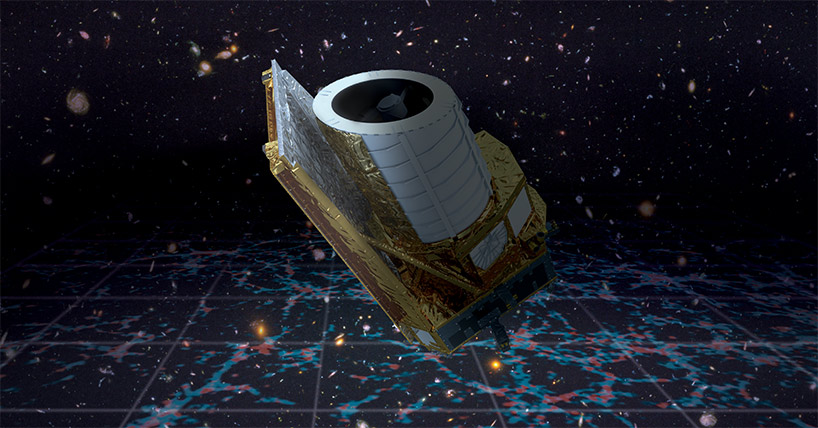Launch of Euclid Mission to map the Universe
28 June 2023
The European Space Agency's (ESA) Euclid flagship Dark Energy Satellite Mission is due to Launch from Cape Canaveral in Florida at 11:12 a.m. EDT (4:12 p.m. BST) on Saturday 1st July 2023, on a SpaceX Falcon 9 rocket.
Euclid’s 6-year mission is to map the dark Universe, using the positions of galaxies and images of dark matter produced from the gravitational lensing distortions of distant galaxies. The galaxy and dark matter maps contain information about the expansion history of the Universe and the growth of structure within it. By analysing these maps, astronomers will be able to determine the nature of both dark matter and dark energy. Dark matter, which unlike normal matter does not reflect or emit light, binds together galaxies creating the environment for stars, planets and life, while dark energy is the mysterious new phenomenon which is pushing galaxies away from each other and causing the expansion of the Universe to accelerate.
To achieve this, the Euclid Consortium team will carry out a very precise and accurate analysis of the images and distances of 1.5 billion galaxies over one-third of the sky. Gravitational lensing causes a one part in a hundred change in these galaxy images, which need to be measured from the sample to a precision of one part in a hundred-thousand, presenting a major data-analysis challenge.

Members of Newcastle University’s research groups for Cosmology and Observational Astronomy are involved in developing new methods for extracting the maximum information from Euclid’s unprecedented data, with the help of the NUdata STFC Centre for Doctoral Training in Data Intensive Science.
The team at Newcastle University includes Dr Cora Uhlemann, who co-leads the Additional Galaxy Clustering Probes work package in Euclid, Dr Joachim Harnois-Déraps (STFC Ernest Rutherford Fellow) and Dr Lina Castiblanco Tolosa (STFC-funded Research Associate).
Click here to read the whole university press release
Combining the exquisite Euclid data with theoretical models and numerical simulations will allow us to answer some of the biggest questions we have about the Universe and its future
